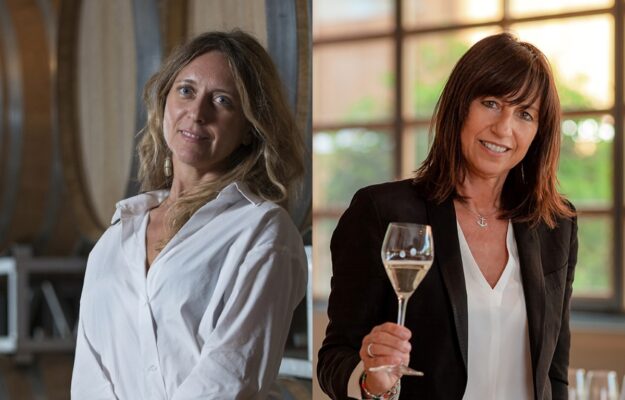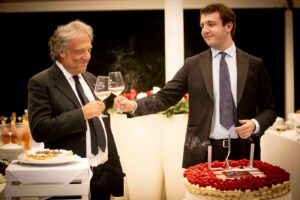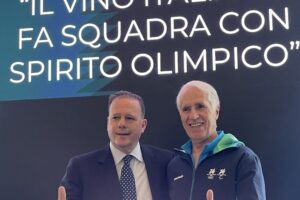The Grand Tour philosophy, between the eighteenth and nineteenth centuries, was to accompany European nobles and intellectuals of the caliber of Goethe to discover Italy’s artistic and cultural heritage. Now, wine tourism in Italy is being reinvented, where wine is the star of unique and enriching cultural experiences, which is the goal of the Association “The Grand Wine Tour”, founded in 2017. The Association unites the best wineries and the various Italian wine-growing territories and their uniqueness, beauty and a high-quality wine tourism offers. The new Communication Managers of “The Grand Wine Tour” are the producers Nadia Zenato, co-owner of the historic Venetian winery, the excellence of Valpolicella and Lugana, and Elvira Bortolomiol, at the helm of one of the most famous brands of Valdobbiadene. They aim to enhance and develop quality wine tourism and to reach 40 associates within the next three years. The new board includes prominent personalities from various great wine-growing areas, such as, Lapo Mazzei, the new generation of the historic Tuscan company based in Chianti, and Alberto Chiarlo, at the top of the Michele Chiarlo brand, to respond to an expanding, but extremely fragmented economic scenario, linked to wine tourism in Italy. The board is chaired by Giovanni Minetti, CEO of Tenuta Carretta, a historic company with vineyards in Langhe and Roero.
Nadia Zenato and Elvira Bortolomiol will, respectively, serve as vice president and member of the Board of Directors, both responsible for the Association’s communications. “This association is unique in Italy”, Nadia Zenato and Elvira Bortolomiol said, “we are very proud to present a project to the world that allows us to codify and consequently unify and enhance the immense Italian wine tourism heritage. What is our goal? To reach 40 member wineries within the next three years, and to present Italian winemaking in its various territories to visitors”.
The various territories which are part of “The Grand Wine Tour”, include the UNESCO World Heritage Sites of Langhe, Roero and Monferrato, the Prosecco Hills of Conegliano and Valdobbiadene, the Colli di Luni, Chianti Classico, the Colli Orientali del Friuli, and the borders of Val di Noto, in Sicily. The Association now counts 16 leading wineries located in eight Italian regions: Cascina Chicco, Ceretto, Coppo, Marchesi di Grésy, Michele Chiarlo, Tenuta Carretta and Villa Sparina in Piedmont; Lunae in Liguria and Torre Rosazza in Friuli Venezia Giulia; Bortolomiol, Costa Arènte and Zenato in Veneto; Castello di Fonterutoli in Tuscany; Umberto Cesari in Emilia-Romagna; Casale del Giglio in Lazio, and Zisola in Sicily. Collaboration among these prestigious companies is aimed at promoting hospitality in the vineyards dedicated to wine enthusiasts and to a demanding clientele, in terms of product and service standards. In order to pursue this objective, the Quality Mark of “The Grand Wine Tour” - unique in Italy in its category - certifies hospitality standards required of members according to precise evaluation parameters, assessed by an external technical body. “The Grand Wine Tour” is a tour operator as well, owned by the association, and active in Italy and abroad. It offers exclusive and personalized food and wine tours in the territories of the Associate wineries. Training and refresher courses on the topic of wine tourism are offered to the staff of the Association’s wineries, to keep up with a constantly growing and evolving market. Furthermore, the new boards’s 2024-2025 agenda will be enriched by participating in trade fairs and b2b meetings, specialized tour operators to achieve greater penetration on foreign markets, renewed communication having a strategic focus on the final consumer, and expanding the training offer to strengthen the skills of the staff responsible for hospitality.
“There is still a long way to go”, Nadia Zenato and Elvira Bortolomiol concluded, “because to increase the attractiveness of hospitality, there must be a radical change of perspective in the winery. In other words, it is necessary to move from a product logic to a service logic, and from a vision oriented towards professionals to one directed towards the private consumer. This is the reason that financial investments are not enough. It is essential to acquire specific skills that know how to communicate the product as well as know the language of hospitality, both aimed at customer service. And, of course, once again, the starting point is training”.
Copyright © 2000/2026
Contatti: info@winenews.it
Seguici anche su Twitter: @WineNewsIt
Seguici anche su Facebook: @winenewsit
Questo articolo è tratto dall'archivio di WineNews - Tutti i diritti riservati - Copyright © 2000/2026







































































































































































































